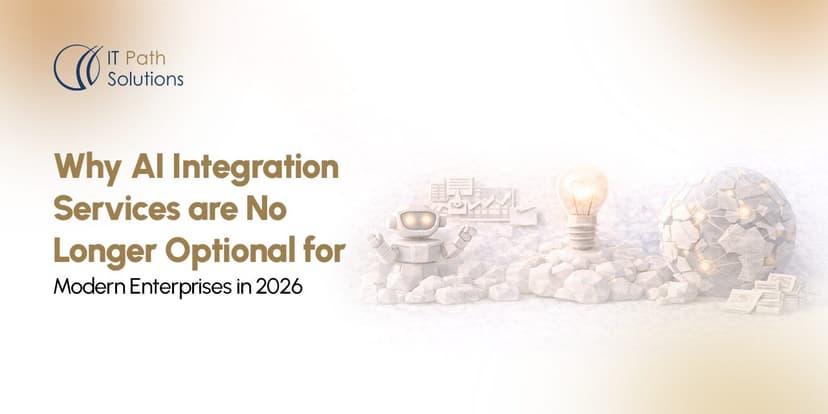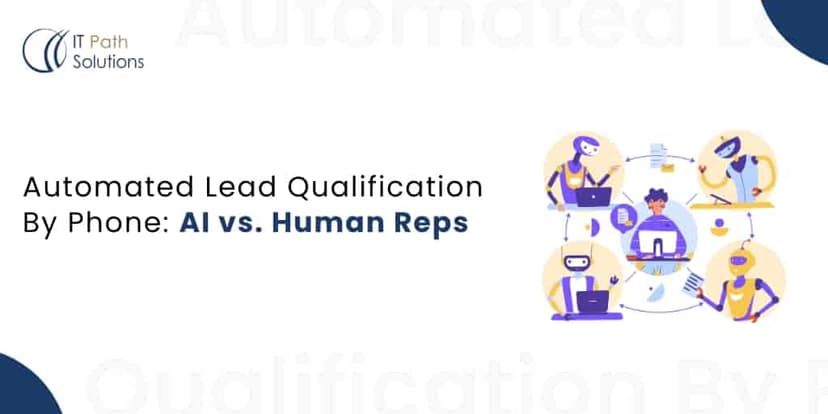How Generative AI Can Speed Up The Logistics Industry
Keyur Patel
September 12, 2025
7 min
Importance of the logistics industry in global trade and commerce
The logistics industry plays a pivotal role in driving global trade and commerce, that supports the movement of goods, information, and resources across the world. Its significance is profound, as it enables businesses to efficiently navigate complex supply chains, reach new markets, and respond to ever-evolving consumer demands. The logistics Industry offers a wide range of solutions, including transportation, warehousing, inventory management, packaging, distribution, and information flow. These interconnected processes collectively ensure that products are sourced, produced, and delivered in a timely manner, ultimately bridging the gap between manufacturers and consumers on a global scale.
Logistics optimizes supply chain operations, minimizing bottlenecks, reducing costs, and enhancing overall efficiency. This leads to improved production cycles, reduced lead times, and the ability to swiftly respond to market fluctuations. Effective logistics management can be a significant source of competitive advantage. Businesses that can deliver products reliably, at the right time, and at competitive prices are more likely to gain customer loyalty and market share.
Generative AI and its potential to transform the logistics sector
Generative Artificial Intelligence (AI) is a cutting-edge technological advancement that has the potential to revolutionize various industries, including the logistics sector. At its core, Generative AI refers to the capability of AI systems to generate new and original content, whether it’s text, images, music, or even entire scenarios, that closely resemble human-created content. This capability opens up a realm of possibilities for enhancing efficiency, innovation, and decision-making in logistics.
Generative AI can analyze historical data, market trends, and external factors to generate accurate demand forecasts. By creating sophisticated predictive models, logistics companies can optimize inventory management, reduce overstocking or stockouts, and ultimately improve resource allocation. With complex networks of transportation routes and varying factors like traffic, weather, and road closures, logistics companies can benefit from Generative AI’s ability to simulate and generate optimal routes in real-time. This results in reduced delivery times, fuel consumption, and overall operational costs.
The logistics industry involves a significant amount of communication, from tracking shipments to coordinating with various stakeholders. Generative AI-powered chatbots and virtual assistants can facilitate seamless interactions, providing real-time information and resolving queries. By analyzing historical data and generating simulations, Generative AI can aid in identifying potential risks and suggesting mitigation strategies. This helps logistics companies make informed decisions to prevent disruptions and losses.
Applications of Generative AI in Logistics
Generative AI can be massively useful in the logistics industry by analysing large amounts of data, analyse it in real time and generate optimal solutions such a s faster routes, more resource utilisation and others is what allows generative AI to possibly transform the logistics industry completely. For large logistics companies that have multiple supply chains and large fleets, it’s not always possible to avoid bad routes and waste of resources, but with generative AI you can minimise resource wastage and create more efficient routes in real time or for long term planning.
You can have enhanced supply chain optimization with analysis of vast amounts of data, identifying patterns in the logistics operations to identify inventories.
You can have a more robust demand forecasting with more enhanced resource allocation and many other benefits such as better resource allocation, reducing wastage and enhancing the overall operations and generating more business by creating room for more demand.
Let’s discuss some of these points in detail.
Supply Chain Optimization
Supply Chain Optimization has experienced a massive transformation with the integration of generative AI in logistics. By harnessing the capabilities of generative AI in supply chain, the complex interplay of variables within supply chains is navigated with unprecedented efficiency. Generative AI leverages machine learning to explore countless potential scenarios, making it a game-changer for supply chain decision-making.
It analyses historical data, market trends, and real-time information to generate optimised routes, demand forecasts, and inventory strategies. This dynamic approach ensures that supply chains remain agile and responsive, adapting swiftly to fluctuations in demand and unexpected disruptions.
Route Planning and Optimization
Route Planning and Optimization has undergone a revolutionary transformation through the infusion of generative AI into the logistics landscape. This innovative technology empowers logistics professionals to tackle the intricate challenges of route planning with unparalleled precision. Generative AI analyses a multitude of variables such as traffic conditions, delivery schedules, vehicle capacities, and even weather forecasts to craft optimal routes. By simulating and iterating through numerous scenarios, it unveils hidden efficiencies and identifies the most efficient paths that human planners might miss.
Generative AI doesn’t just stop at finding routes; it adapts. It learns from historical data and real-time inputs, constantly improving its decision-making accuracy. This adaptability is a game-changer, especially in dynamic industries where last-minute changes are the norm. The result? Reduced transportation costs, decreased delivery times, and minimised carbon footprints, as routes become more streamlined and eco-friendly.
Furthermore, the integration of generative AI creates room for proactive decision-making. Logistics teams can now anticipate potential disruptions and reroute deliveries on-the-fly, ensuring seamless operations even in the face of unexpected challenges. As a result, businesses can provide better customer experiences, reduce inefficiencies, and unlock new levels of productivity, making route planning and optimization a prime example of how generative AI is revolutionising the logistics industry.
Warehouse Management
Warehouse Management experiences a revolutionary upgrade with the integration of generative AI, ushering in an era of unparalleled efficiency and precision. Generative AI transforms the traditional warehouse into a dynamic, data-driven hub by harnessing its predictive capabilities. By analysing historical data, demand patterns, and supply chain fluctuations, generative AI empowers warehouse managers to predict inventory needs accurately.
This predictive prowess isn’t limited to inventory. Generative AI optimises warehouse layout and organisation, suggesting the most efficient placement of products to minimise retrieval times. It even considers factors like item popularity and seasonal trends to enhance overall operational flow.
Predictive Maintenance
Predictive Maintenance in logistics is elevated to new heights through the integration of generative AI, revolutionising the way equipment and vehicles are managed. Generative AI analyses an array of data points, including historical performance data, real-time sensor readings, and even external factors like weather conditions and route complexity. This comprehensive analysis enables logistics teams to predict when maintenance is required with remarkable accuracy.
Generative AI excels in identifying subtle patterns and anomalies that might go unnoticed by traditional methods. It can anticipate potential equipment failures, helping logistics companies take proactive measures to prevent breakdowns that could disrupt supply chains. By doing so, it minimises downtime, reduces the risk of unexpected delays, and optimises overall operational efficiency.
Customer Service and Communication
One of the significant applications is chat bots powered by generative AI. These virtual assistants offer instant responses, 24/7 availability, and the ability to handle repetitive queries. They not only provide quick resolutions but also free up human agents to focus on more complex and critical issues.
Generative AI also contributes to sentiment analysis. By analysing customer feedback and social media interactions, it can gauge customer sentiments, enabling companies to address concerns promptly and enhance customer satisfaction.
Moreover, generative AI can generate automatic responses that are contextually relevant, ensuring consistent and accurate information is provided to customers across different touch points.
Conclusion
Generative AI’s predictive power enables businesses to anticipate demand, optimise routes, and proactively manage equipment maintenance, resulting in cost savings and streamlined operations. Its adaptability and learning capabilities ensure continuous improvement, making it a valuable asset in an ever-evolving industry.
Furthermore, the impact of generative AI extends beyond efficiency gains. It is fostering better customer relationships by offering personalised experiences, instant responses, and sentiment analysis. This not only enhances customer satisfaction but also strengthens brand loyalty.

Keyur Patel
Co-Founder
Keyur Patel is the director at IT Path Solutions, where he helps businesses develop scalable applications. With his extensive experience and visionary approach, he leads the team to create futuristic solutions. Keyur Patel has exceptional leadership skills and technical expertise in Node.js, .Net, React.js, AI/ML, and PHP frameworks. His dedication to driving digital transformation makes him an invaluable asset to the company.
Related Blog Posts

Why AI Integration Services are No Longer Optional for Modern Enterprises in 2026
Focus keyword: Al integration services Search intent: Informational/Commercial companies exploring automation and Al solutions. Keywords: Artificial Intelligence Solutions Ai for Business Automation Machine Learning Integration Ai Development Company Digital Transformation with Ai It is Monday morning, December 2025. CEO A (The Traditionalist) walks into his office. His inbox is overflowing with 200 unread emails. His… Why AI Integration Services are No Longer Optional for Modern Enterprises in 2026

Complete Guide to PHP Versions: When Should You Upgrade to the Latest Version?
Running a website on outdated PHP versions is like driving a car without insurance. Everything seems fine until something goes wrong. With over 77% of websites using PHP, understanding PHP version support timelines isn’t just technical jargon; it’s critical for your business security, performance, and user experience. Current PHP Versions and Support Status As of… Complete Guide to PHP Versions: When Should You Upgrade to the Latest Version?

Automated Lead Qualification By Phone: AI vs. Human Reps
Imagine losing half of your potential customers merely because no one answered the phone fast enough. It is a critical concern many businesses face in 2025, where competition is relentless and patience is almost nil. Phone-based lead qualification remains the lifeline for companies across healthcare, finance, real estate, and SaaS industry verticals. Every missed or… Automated Lead Qualification By Phone: AI vs. Human Reps
